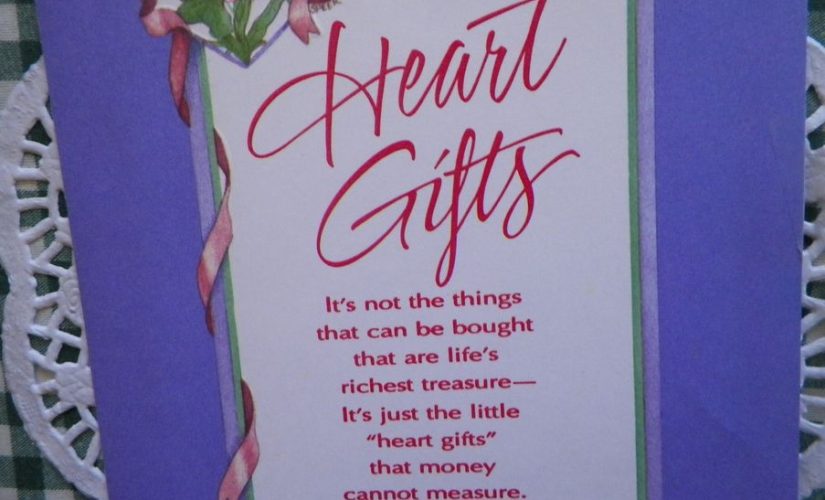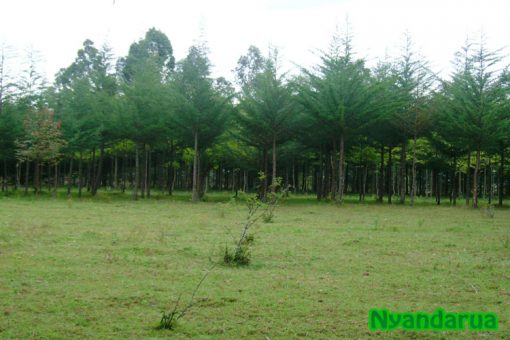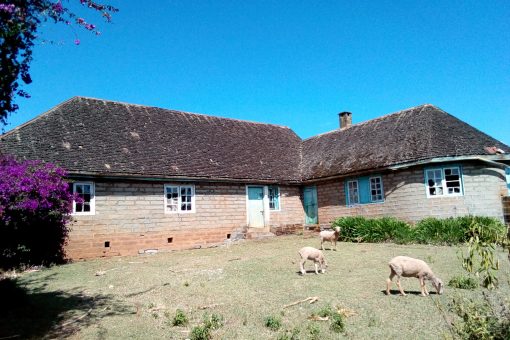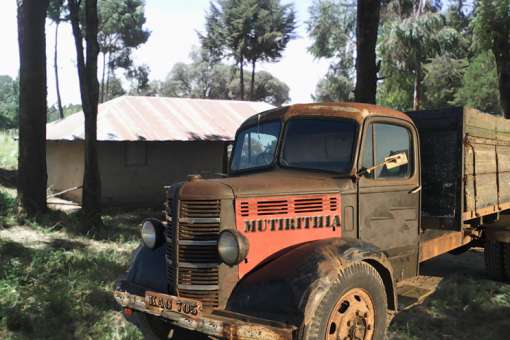Still, my young brain could not fully comprehend why we only had one of everything, including the smallest and cheapest of items like knife, axe, scissors, comb or a jar of Vaseline. I was fully convinced my parents could have afforded a second item of each if they wanted to.
But as I have grown older, I have since realized we did not need more than we had. What we had was enough. We learnt to share. We learnt to be organized, returning the only item to its designated place so that the next person who needed to use it could find it. I have since learnt that our lives are not made richer by the stuff we own, but rather by the people we get to share with, what we already have. That was a powerful lesson for me and I have carried it with me to adulthood and have attempted to teach the same to my children, but don’t ask me how that is going? But that realization did not come easy. My parents had to work so hard to adjust our attitudes and puncture our inflated egos, because young people have a tendency to forget the important life lessons taught by their parents over the years. Case in point:
When my siblings and I settled in our careers and two of my brothers managed to buy cars within the same duration, that weekend that followed, we felt it was important to go impress our parents, especially our father. Early Saturday morning, four of us headed to OlKalou in two cars, a driver and passenger in each car. On arrival, we made our grand entrance into our parents home, revving the engine (kuhuura reethi) and hard braking, nearly ramming into our father’s pick up parked in its usual spot. We were received very well, feed very well, congratulated on our accomplishments and enjoyed a pleasant evening chatting with our parents almost as equals. We were on cloud 9. Come Sunday, before our departure, our father convened the usual Kamukunji that we grew up attending; an event normally used for catching up and receiving some words of wisdom. When we walked into the living room that afternoon, we had a spring in our step because we knew the old man was impressed with our accomplishments, so there would be no tough talking. Boy, we were wrong. Our father shredded us to pieces for driving two cars all the way from Nairobi with only 4 of us, when we could have easily fitted in one car. He told us his home was not a Petrol Station where different models of cars must line up in order to fill up. His parting words were equally stinging. He told us that since this trip was not meant to visit them but rather to show off, we should have been smart enough to make this trip in one car, then come back the following weekend in a different car, drive all over OlKalou town honking our horns, and in that way our bloated egos will be completely satisfied. He also called into question our driving skills judging from the way we busted into his compound like some get away cars involved in a bank robbery. He had more stinging words especially on that subject. We sat there quietly you would not think we were the same baboons that entered our parents compound with so much hoopla the previous day. Now, like some scared puppies with their tails tucked between their hind legs, we sheepishly said our goodbyes, embarrassed, humiliated as we took the long walk of shame to our cars. Walking to OlKalou town to catch a Nissan matatu or one of our beloved buses “Jungle” or “Rural” would have felt so much nicer at this point, than walking the few steps to our cars with our parents watching us from the doorway. There was very little conversation on our drive back to Nairobi, but we got the message loud and clear.
The Kamukunji’s and constant dressing down by my tough as nails parents has served me well as an adult. I can live a very simple life with bare necessities without feeling deprived, and if I have some abundance, I can live it up too, without being defined by it or feeling important. I witnessed my parents living both, and they remained the same people, true to themselves and those around them, especially us, their children. They cautioned us strongly about changing who we were, just because our fortunes had changed. Over the years, they had clearly demonstrated to us what sharing with others meant, and what it can accomplish, without categorizing people into haves and have-nots. They reminded us that sharing with others, especially those less fortunate than us, does not diminish our social or economic standing: if anything, it opens up more room for us to receive more blessings because God tasks us with the responsibility of sowing into other people’s lives, lifting them up to a place of dignity. God puts it very clearly in Luke 12:48 “from everyone who has been given much, much will be required; and from the one who has been entrusted with much, even more will be expected”. The OlKalou farmers helped each other out, lifted each other up and they all rose together, realizing their dreams together. They did not hold a meeting to agree on those honorable values. They just did it, answering to the call and need of each one of them on a daily basis until they were all standing on their feet with their land title deeds securely locked up in their homes. They all started out simple and they rose to greatness together. Some became very wealthy, others raised very successful children while others maintained a modest lifestyle farming their land with their adult children, but they all somehow remained the same Pioneer Parents we grew up knowing and admiring.
That made our parents emphasize even more strongly: that you remain the same person whether in a mud grass thatched hut or in a brick mansion, cooking with firewood or gas / electric, sitting in a corner office in an air conditioned high rise building or weeding your crops in the OlKalou fields: the man or woman inside you is the same person and will always be. They concluded therefore that the performance of a task, any task, should be done with the same attitude, focus and commitment – doing it well and aiming at results you can be proud of. They emphasized that there is pride in being well rounded, being able to perform any task, menial or complex, approaching both with the same vigor, holding your head up high and your dignity intact. No apologies necessary. This is clearly demonstrated in how our Pioneer Parents spent their early days in OlKalou toiling in the fields the whole day, doing back breaking work alongside their children, workers and day laborers for those who could afford them. In the decades that followed, their fortunes had changed considerably with some owning properties in OlKalou town and beyond, others owned cars, pickups or tractors and majority now lived in beautiful mansions, welcoming their successful sons and daughters who parked beautiful cars outside, bringing tonnes of shopping to their parents who no longer needed as much. But they were still the same people. It is their circumstances that had changed, but the people involved here were still the same individuals. The skills they possessed and utilized together those early years when they worked the land side by side, did not suddenly disappear because the children were now Engineers, Teachers, Pilots, Architects and Accountants. Instead, they had just gained additional academic skills as qualified professionals in their various fields, adding onto the manual skills they grew up with in OlKalou, that enables them perform farm and rural chores without the need for orientation.
With all the above demonstrated and hammered into our heads all our growing years, I am very comfortable in whatever situation I find myself. If I step into a rural setting like my OlKalou of the 1970s, I am perfectly Ok. It is familiar territory. I may feel a little inconvenienced away from my usual comforts, but I can manage just fine. I can weed, dig up potatoes, chop firewood, fasten a jerrycan of water securely with a rope and carry it on my back. My back may be sore for a couple of days after that, because I don’t do that kind of work as often as I did growing up, but I can still manage. I possess the skills and I can tap into them any time if needed.
I contrast that with friends of mine who were born and raised in the city. At no fault of their own, they cannot function in a rural setup like OlKalou if they tried. It is mind blowing for them to watch me or anybody else securing a load of firewood or a jerrican of water with a rope (mukanda). They do not have the slightest idea how to tie a secure knot to carry any of those loads safely. Whenever I witness that, I am proud of those basic skills I possess that make life manageable for me no matter where I find myself. My urban friends are also the ones who gets mesmerized when I change a punctured tyre for them without waiting for help from the men. I have cleaned the corrosion off their battery terminals when their cars couldn’t start, measured and topped up fluids without fear of getting my hands all greasy. I have identified noises from their cars, simple ones like whizzing of various belts or wheel related sounds like from worn out brake pads, rotors or wheel bearing. Like I mentioned earlier, my brothers involved me in all tasks performed on our fathers pick up truck, and that is where I learnt those basic automobile skills that I did not think were valuable until later in life when I realized majority of women don’t possess the same skills even when they own cars. The joy and pride my parents talked about, in knowing how to perform any task infront of us, whether simple or complex, now makes absolute sense and I am eternally grateful for that training I received growing up.
In the same breath, if I encounter sophisticated people, I can pull out my sophistication that I learnt from my sister decades ago when I visited her house for a month when I was 11 years old. I can toast champagne without breaking the fragile flute glass, I can drink tea in delicate china cups with my pinkie flying in the air, but I am equally contented drinking tea from a 15 enamel mug.
I am a woman of all seasons, not because I am perfect in anything I do, but because I am versatile. I am contented and happy in whatever situation I find myself in, and I am always confident of my preparedness in handling whatever comes my way. I am also always ready to share my expertise with whoever is willing to learn a skill I possess, and I am equally ready to learn new things. You never know where a new skill will come in handy. My life is very rich in that simple way and I am so grateful.
So, none of my experiences, however uncomfortable has gone to waste. They have all served me pretty well and I have my Pioneer Parents to thank for it. They blazed the trail, I am just following their lead.




